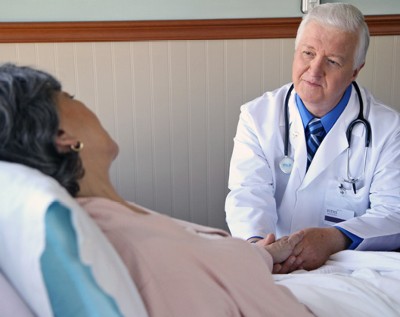By Robin Fiorelli, Senior Director of Bereavement and Volunteer Services, VITAS Healthcare
From the moment the first US coronavirus patient was diagnosed, front-line healthcare workers in all roles and across all 50 states have faced tremendous personal and professional challenges. Against all odds, you have rallied to help, and many of you now experience very real feelings of grief, loss, doubt, and anxiety.
Understanding colleagues are ready to listen to your stories, identify your challenges, and find resources to help you cope.
Others Share the Same Stresses and Sources of Grief
First, know that you are not alone in your experiences and that help is available.
Daily, you have put your own health at risk and returned to stressful working conditions in busy hospitals, emergency departments, and care facilities. You have faced scenarios unlike nearly anything in modern healthcare history. Despite your best intentions and efforts, many of your patients, residents, and even your coworkers have died.
Perhaps you’ve stood as a surrogate or substitute family member at a patient’s or resident’s deathbed. Maybe you now question your abilities and skills as a healthcare professional. You might be worried, anxious, and exhausted. Like the rest of the country, you are likely fearful or unsettled about what the future holds.
Look for Common Behaviors and Symptoms of Grief, Stress, and Anxiety
If you’re a healthcare worker in any role, look for symptoms, emotions, and behaviors that indicate the time is right to initiate self-care, talk to someone, or reach out for help.
Physical Reactions
- Tightness in the chest or a sensation of not being able to breathe
- Muscle tension, aches, pains
- Headaches
- Restlessness, inability to relax, difficulty sleeping
- Heart palpitations
- Digestive issues
Emotional/Behavioral Reactions
- Anxiety, worry, and fear about getting sick/infected or infecting others
- Anger and frustration (at the virus, sheltering in place, disconnection with loved ones/routines, unemployment, loss of income, etc.)
- Sadness or crying more than usual
- Insomnia, strange dreams
- Exhaustion
- Change in eating behaviors (eating more or less)
- Trouble staying focused
- Aggravation of pre-existing medical or psychological conditions
Find Ways to Support Yourself and Connect With Others
Next, take time—even if only a few minutes a day—to care for yourself.
- Stay updated about the pandemic from trusted sources and in increments that do not add to your anxiety or distress.
- Identify and share COVID-19 facts so you understand actual risks to yourself and the people you care about.
- Talk to others to decrease your isolation/loneliness and to establish sources of support. Keep in touch with loved ones, family, and friends via phone, text, and virtual platforms.
- Remind yourself that you are resilient. Rely on coping strategies that have worked in the past to calm and address your concerns, including faith, positive self-talk, exercise, friends, support groups, hobbies, yoga, mindful meditation, good nutrition, etc.
- Stay in the present and take one day at a time.
- Avoid “what-if” thoughts, mental worst-case scenarios, alcohol, tobacco, or other drugs.
- Monitor yourself for symptoms of depression or extreme anxiety: prolonged sadness, difficulty sleeping or over-sleeping, intrusive thoughts or memories, hopelessness, inability to function.
- Talk to a peer or supervisor, or seek professional help if needed. Focus equally on solutions and frustrations.
- Give compliments and share successes and heartwarming stories. Every crisis has them!
Participate in Virtual Sources of Support
Several COVID-19-related resources have emerged to help healthcare workers and others care for themselves or connect with others. These are just a few:
- PeerRXMD® is a free, peer-to-peer (buddy system) program for physicians and healthcare workers that offers support, connection, encouragement, and skill-building resource.
- Death over Dinner’s Healthcare Edition enables healthcare professionals to share their feelings and experiences surrounding end-of-life care.
- US Department of Health and Human Services offers a Disaster Distress Helpline to help anyone dealing with distress related to natural or human disasters.
- Reiki practitioner and author Sundar Kadayam offers two, free, 15-minute weekday “Peace Practice” sessions (7 am and 10 am Eastern) via Zoom to help attendees calm their minds, meditate, and embrace peace.
Please remember to honor yourself! Despite obstacles and frustrations, you are fulfilling a noble calling—taking care of those most in need.


